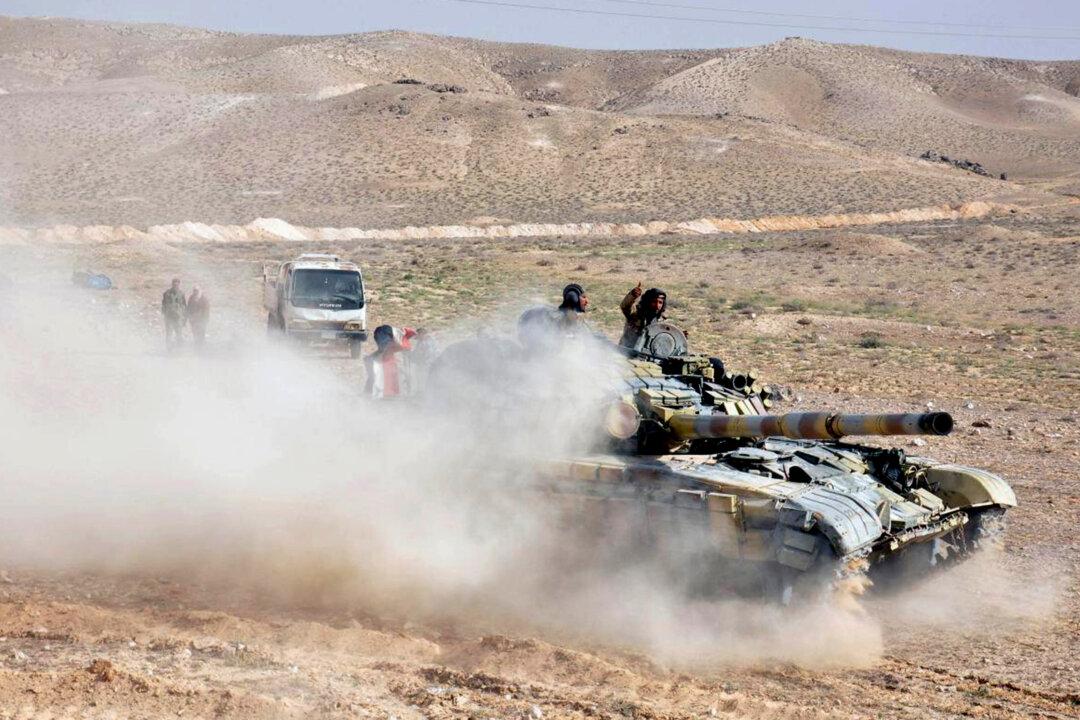DAMASCUS, Syria—Syrian government forces recaptured a Mamluk-era citadel in Palmyra from the extremist Islamic State group on Friday, Syrian state media and monitoring groups said, as the fierce battle for control of the historic town entered its third day.
Syrian and Russian warplanes struck at least 56 targets inside IS-held areas of the city and pro-government militias supported the army’s advance, said the Syrian Observatory for Human Rights, a Britain-based monitoring group.
Palmyra has been controlled by the extremist group since May. The militants have destroyed some of its best known Roman-era archaeological relics.

In this photo released on March 24, 2016, by the Syrian official news agency SANA, Syrian government soldiers gather outside a damaged palace, in Palmyra, central Syria. Syrian government forces recaptured a Mamluk-era citadel in Palmyra from the extremist Islamic State group on Friday, Syrian state media and monitoring groups said, as the fierce battle for control of the historic town entered its third day. SANA via AP





